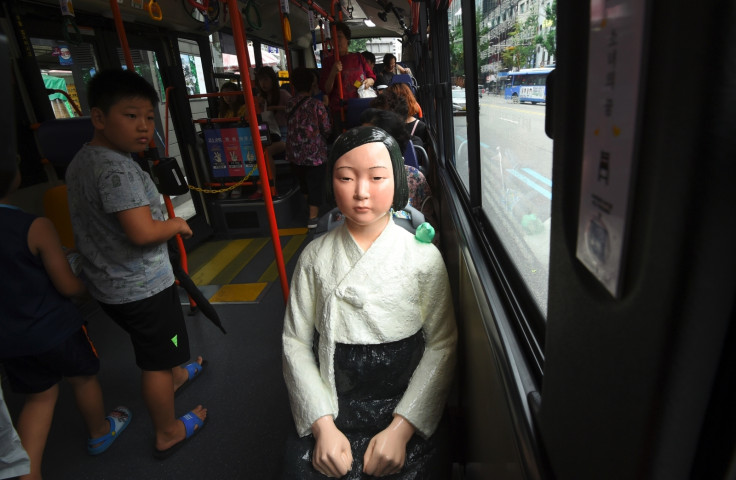South Korea installs statues of 'comfort women' on buses in stark reminder of WWII horror
Life-sized figures will be on buses for the next six weeks and stop at locations such as the Japanese embassy.

South Koreans will share their local buses with life-sized statues for the next six weeks, to remind them of one of the most disturbing incidents of the Second World War.
A local bus company in Seoul has installed a series of full-sized female figures in five vehicles paying tribute to International 'Comfort Women' day (14 August). These were women in occupied Asian countries who were forced to work in Japanese military brothels during the 1939-1945 conflict.
The plastic statues portray women with calm expressions and hands in their laps, marking the small number of these women that still remain in South Korea.
South Korean activists say around 200,000 women were forced to work as sex slaves for Japanese soldiers.
A large proportion of the wartime atrocities happened in Korea, but there were also other military brothels in China, Taiwan and the Philippines.
However, Japan had for many years denied the existence of 'comfort women', saying these teenage girls were sex workers, and were not forced to provide sexual services.
Japanese Prime Minister Shinzō Abe offered agreed to pay $8.3m (1 billion yen) to victims in South Korea two years ago.
But some Koreans still find Japan's move falls short, saying the agreement was reached without consultation with the victims — and many are still angry.
The plastic statues were installed by the president of a Seoul-based transportation company, Lim Jin Wook, who says the national government is not behind the move.
Uncomfortable
But Seoul has shown its support for the project, which will run until the end of September.
The city's mayor, Park Won Soon, rode on one of the buses, saying it was an "opportunity to pay tribute to the victims".
One of the stops includes the Japanese embassy in Seoul, as well as other destinations popular with Japanese tourists in the capital city.
Lim said he does not want to make Japanese people "feel uncomfortable", but does not want the issue to be forgotten.
This is not the first time statues of comfort women have been installed in Korea.
A 1.5m tall statue, showing a comfort woman, was earlier last year installed by activists outside the Japanese embassy in the South Korean city of Busan.
Japan called for its removal — and when South Korea refused, Japan recalled some of its diplomats.
© Copyright IBTimes 2025. All rights reserved.






















